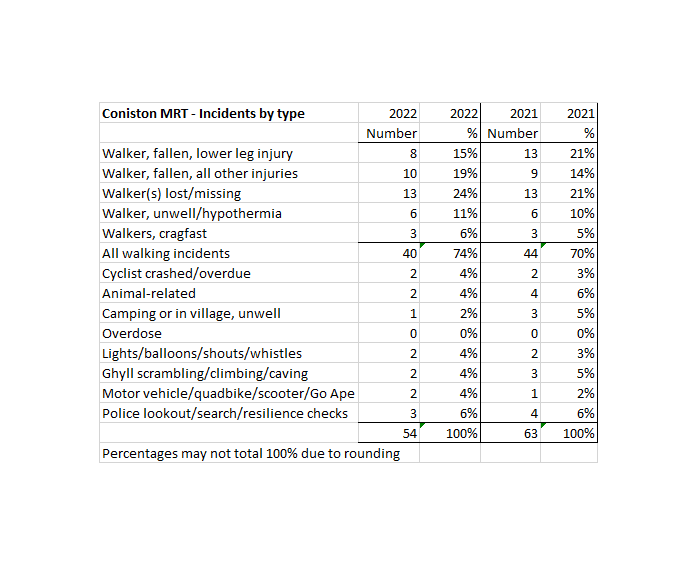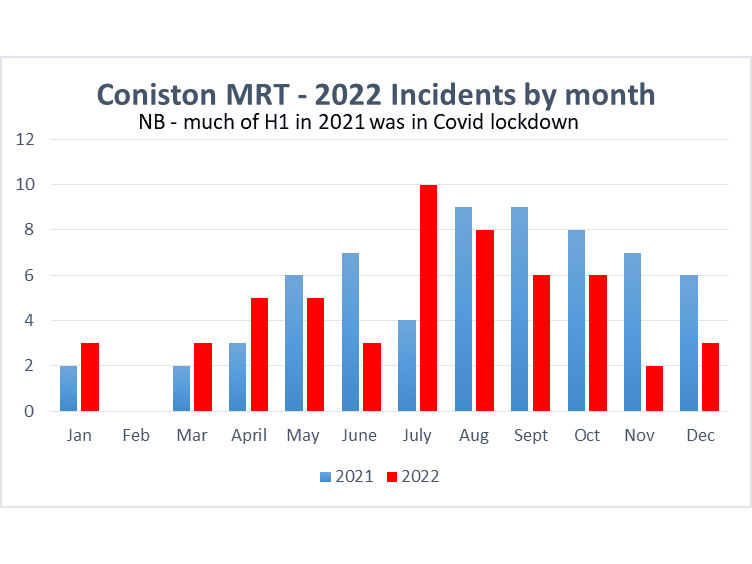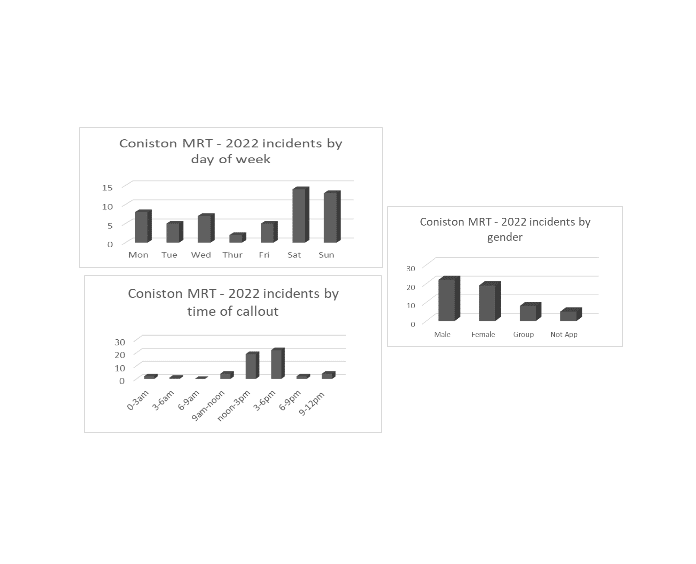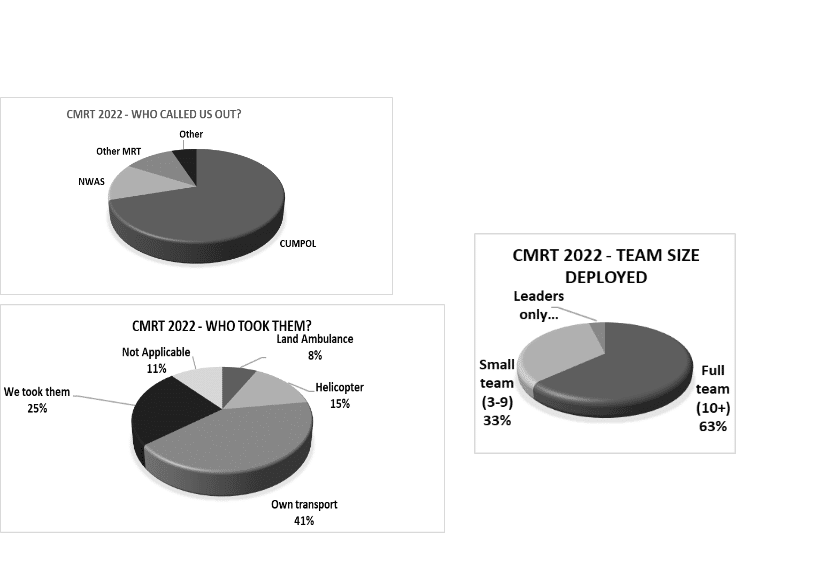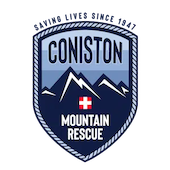The number of incidents that we attended in 2022 was 54, which was 14% down on 2021’s 63 incidents. That year saw large numbers of visitors to the Lakes because Covid-19 restricted flying to the Mediterranean for holidays. The range of incidents this year was very wide – two fatalities on the hill, a further one later at hospital, and two dog fatalities. At the other end of the range, there was a callout for a search at 1.30am which was closed in just 3 minutes, surely our shortest-ever callout.
For once, lower leg injuries were not the most frequent cause for callouts – this year, lost walkers caused significantly more incidents. Several of these could have been avoided by better planning or equipment (map and compass), or trying a bit harder at self-rescue before calling us, but some did the right thing by calling before getting themselves into more trouble on steep ground. Our typical peak callout timeframe of noon-3pm was beaten this year by the 3-6pm slot due to a significant number of callouts in the 15 minutes after 3pm.
A more significant change from the past was the reduction in land ambulances attending our incidents, down to 4 in the year from 16 in 2021. There were more helicopter evacuations than land ambulances, probably for the first time ever. We got plenty of practice putting casualties with a leg in a splint across the back seat of their partner’s car as the fastest way for them to get to hospital.
Finally, the aggregate number of hours logged on these incidents in 2022 was around 1,275 hours, not including all the hours for regular training, equipment maintenance and fund-raising, which are all part of keeping an all-volunteer team going.
Coniston MRT – Summary of 2022 Incidents
